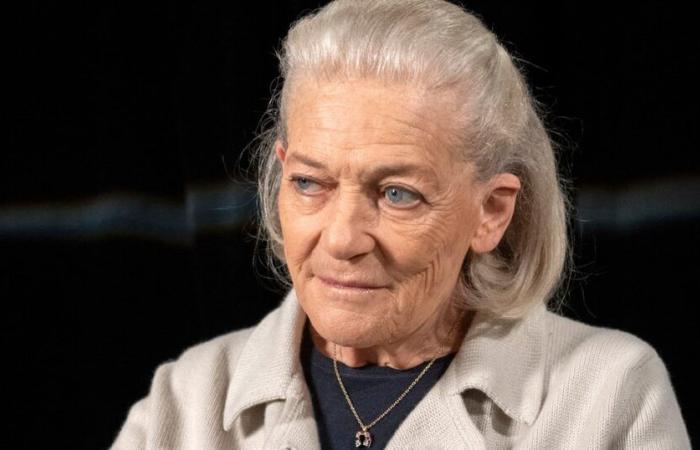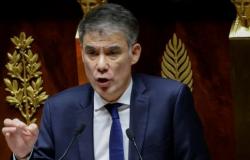Eight years before the attack on Charlie Hebdoan emblematic trial was held at the Paris high court: that brought by Muslim associations against the satirical weekly, which had published the caricatures of Mohammed – initially published in the Danish newspaper Jyllands-Posten. Among the personalities called to testify in defense of Charlie included Elisabeth Badinter. For L'Express, the philosopher returns to this trial (won by the newspaper) and draws up a worrying assessment.
L'Express: How did you end up going to testify in favor of Charlie Hebdo at the so-called “caricatures” trial in 2007?
Elisabeth Badinter: It's very simple. I received a call from a young lawyer, whom I did not know personally: Richard Malka. He was going to defend Charlie Hebdo with Georges Kiejman. I said yes immediately to his proposal. I had the feeling that something fundamental was at stake. Perhaps when you are a specialist in the 18th century, you look at everything concerning freedom of expression with a watchful eye… My intimate conviction was that if Charlie was condemned for these caricatures, it would have been an incredible step backwards in relation to our history, to Voltaire, to his work on sacrilege etc. I saw the press which had published these caricatures as the last bulwark of my freedom. I said it at the bar: if the court were to find in favor of the accusers of Charliethen silence would be imposed by fear. And silence does not mix well with democracy. Above all, we must not put our finger in this deadly process.
READ ALSO: “Like a vibration in the body, constantly”: ten years after Charlie, the sad results
Was this testimony an important moment for you?
Yes. I testified on the first day. I must have spoken for five or ten minutes: the idea was not to give a course on Voltaire and the Chevalier de La Barre (she laughs). I spoke little, but I remember a serious moment, because I really felt the danger for our democracy. When I stopped talking, the other side didn't ask me any questions. Master Szpiner approached, then gave up. Leaving court, I told the cameras how courageous Charlie's cartoonists and journalists were, and that “God knows what could happen to them.” We already feared for them.
At the time, what was the trend of opinion? Was she more pro or anti? Charlie ?
It was especially abroad that reactions and opinions were extremely violent. The scandal was international. What worried me a lot was that under the pressure and influence of cultures that were not ours, of ways of seeing that were not ours, some, ultimately, were considering returning to ban on blasphemy as in the 18th century. Around me – and even if, knowing me, people took oratorical precautions – I felt that the argument took on “we must not offend”, “it is serious to insult religions”, “why provoke?”, etc. These people thought and still think that they are in the camp of progress. Yet, historically, philosophically, they argue for the great regression.
READ ALSO: François Molins: “The reaction to Charlie Hebdo was the last moment of national harmony”
Charlie won the case. Since then, eighteen years have passed, during which France has been ravaged by Islamist attacks, one decimating the editorial staff of the satirical weekly. Would you say today that you feel less alone or more alone on these issues than you did then?
I think fear won out. The fear, first of all, of what it can cost physically, for one's life, when we speak out on these subjects, and I am of course thinking of the deaths of Charlie but also to Samuel Paty, beheaded after leaving college. Social networks play a harmful role, because we now know how a “bad buzz” can form and grow until it lands on the phone of a candidate for jihad. Our news is peppered with cases like those of the principal of the Lycée Maurice Ravel, in Paris, threatened with death after asking a student to remove her veil within the premises of the establishment. These cases can only confirm the majority's fear of speaking out. Added to this is another fear: that of being singled out as belonging to the “bad camp”; to be called racist, Islamophobic, etc. So, there are still very few people who speak. Except, of course, in the secrecy of conversations with family or friends. This total dichotomy between public conversation and private speech is not a sign of democratic health.
.
- -





